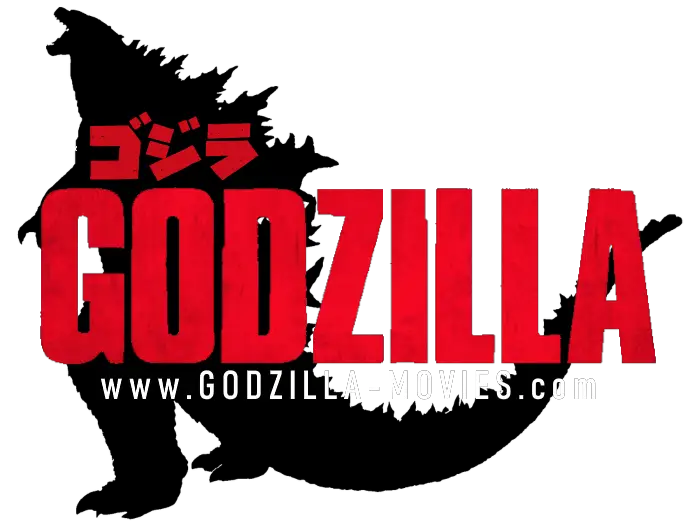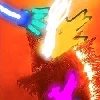It seems like every generation has a moment that defines the way they view the world. For those in the 60s and 70s, it might be the Civil Rights Movement or Vietnam. In the 80s and 90s, we saw the Berlin Wall crumble, a sign the Cold War was over. Then you have my generation, where we sat in our middle/high school classes, witnessing the fall of the Twin Towers.
While all of these moments are different, they change the way we view the world, our friends and family, strangers, and even ourselves. Some of the changes are good (white American citizens aren’t the only ones who deserve rights and liberties), whereas some are...far from helpful (not all Middle-Eastern men and women are terrorists, despite what we are led to believe). No matter the approach one takes with the particular event, it still shapes our lives, for better or for worse, and they become ingrained in the way we think and live.
This is why with the Kaiju Apostle Podcast, the show I co-host alongside my friend Chris, attempt to put some of the context back into kaiju films--specifically those of the Godzilla and Toho persuasion. Trying to watch Gojira, or any of the subsequent films, without keeping in mind the historical contexts means you miss out on why the film exists to begin with.
Arguably, I know most of us can watch the films without this deeper knowledge. I mean, we all enjoy the monster fights, there’s no getting around that. It’s what hooked the majority of us from the get go. But it’s not just Gojira and the bombings of Nagasaki and Hiroshima, along with the Daigo FukuryÅ« Maru incident. Each film is a glimpse into the way Japanese men and women lived their lives, whether it was the blue-collar workers in Rodan, the struggles of being a latch-key kid in the 60s and 70s with All Monsters Attack, or the way Japan was working to rebuild their economy in the 80s with Return of Godzilla. Each film is rooted in a certain point of Japanese history, and while you can watch them without the context, you miss out on what the filmmakers were saying, especially when you’re an American so far removed from non-American cultures.

For those of you who think I may be coming on a little strong, think about it in a different way: the Bible. This is a book that has been read, in various forms, for the past 1700(+/-) years all over the world. Each book and letter was written by someone immersed in a particular culture, writing a text that, at large, was a part of their overall “story.” That is, the testament of the God of Abraham, Isaac, and Jacob. Oftentimes, the writing would be in response to a major event happening, whether it was the founding of Israel, or the captivity Israelites experienced under Assyria and Babylon.
Keeping the latter point in mind, I want to bring up a book with such deep meaning that is often overlooked when it comes to the historical context due to its “Veggie Tales-ization”: Jonah. The book of Jonah is a widely misunderstood text in Israel’s scripture, and I have not been immune from creating my own horrible “adaptations.” Growing up, it’s inevitable the focus will be on the whale large fish, because that’s what kids care about, right? (Hence the Veggie Tales comment.) As I got older, my Sunday school teachers taught primarily about God’s forgiveness towards Jonah and the Ninevites. Eventually, after leaving the Mormon church for Protestantism, the main message presented to me was not only the “parallels” between Jonah and Jesus, but also the apologetic argument if we believe Jesus died and rose from the grave, how could we not believe Jonah could survive in a giant fish?
To be fair, these points are not inherently incorrect. There can and should be a conversation about what genre of literature Jonah is, but the point remains: yes, the text states that Jonah was in a giant fish for three days; yes, Jonah ran away from God’s calling to preach repentance to the Ninevites because they were Israel’s enemies, but God still gave him another chance; and yes, there are some similarities between both Jonah and Jesus. However, these points do not really interact with the history the text was written in, so let’s consider the Jonah story from a different perspective.

Most Old Testament scholarship argues the author of the book of Jonah wrote the text “after the return from the Babylonian exile in the fifth century B.C.E.” This may not seem important until we realize Jonah preaching to Nineveh meant he would be going to the Assyrian capital city, “the power that entirely destroyed the northern kingdom of Israel and later threatened the southern kingdom of Judah as well.”
In other words, this was equivalent to “sending a Jewish speaker to deliver moral exhortation to the Germans in Berlin in 1936.”
The text makes it clear Jonah did not like the Ninevites, but if the text’s origin was after the exile, and I believe it was, the significance cannot be missed: if Jonah preaches repentance to Nineveh, then Nineveh is not crushed, which means Israel will eventually be enslaved. If Nineveh does not preach repentance, then Israel may be spared.
If that doesn’t give you chills, I don’t know what will.
No matter when the book of Jonah was written, the Israelites would have read it after the exile and not have missed the point. Jonah’s reluctance takes on new meaning, having the ability to determine who should prosper. The king’s quick act of repentance and willingness to turn away his wrath from their people would have stung deep, knowing Israel themselves would eventually be subject to persecution at the Assyrian’s hands; an extension of God’s wrath, if you will. For generations, Israel had viewed themselves as God’s sole people, but now we see him desiring the entire world, even if it means those who would eventually enslave his children.
I could go on and on, but the point remains: knowing the context of when a text is written helps amplify the meaning, and this is no different than when we watch films. It’s not that we cannot watch these films with more of a “surface viewing” and not find a reason to enjoy them. In fact, I’m not even arguing this needs to be the most important element of the film, as that’s clearly a matter of opinion. Rather, it’s that understanding the context and history helps amplify our overall appreciation for the franchise.
At the end of the day, we can go back and watch the films for the action and everything else, but in the back of our mind, if we take the historical contexts seriously, we remember the reason why Honda and Company created these films to begin with. Most of us acknowledge the story behind Gojira; it’s pretty hard to ignore. But the other films still have so much to say, and it doesn’t take away from what we already have to give them the time and attention they truly deserve.
---
David Marshall is many things, but most importantly a husband and father. When he isn’t spending time with family, he’s co-hosting the Kaiju Apostle Podcast with Chris Wermeskerch, where they try to analyze Godzilla/tokusatsu kaiju films with an eye for theology and ethics. You can follow him on Twitter at @kaijuapostlepod or Instagram at @kaijuapostlepod.
Discuss this news and other Godzilla & Monsterverse topics in our Godzilla Forums- a dedicated community of Godzilla fans built by fans for fans!
More Godzilla Movie News & Articles
Want to chat about Godzilla x Kong: The New Empire? Join thousands of other Godzilla fans in the Godzilla x Kong online forums here! You can click here to start your own discussion!
Browse images from the upcoming Godzilla vs. Kong sequel here as well as images from Apple TV’s Monarch: Legacy of Monsters and Toho’s Godzilla Minus One.
Stay up to date with the latest news on all things Godzilla, Toho and the Monsterverse also by liking us on Facebook and by following us on Twitter and Instagram! Also, consider subscribing your email to our blog for instant notifications of when new posts are made!



























